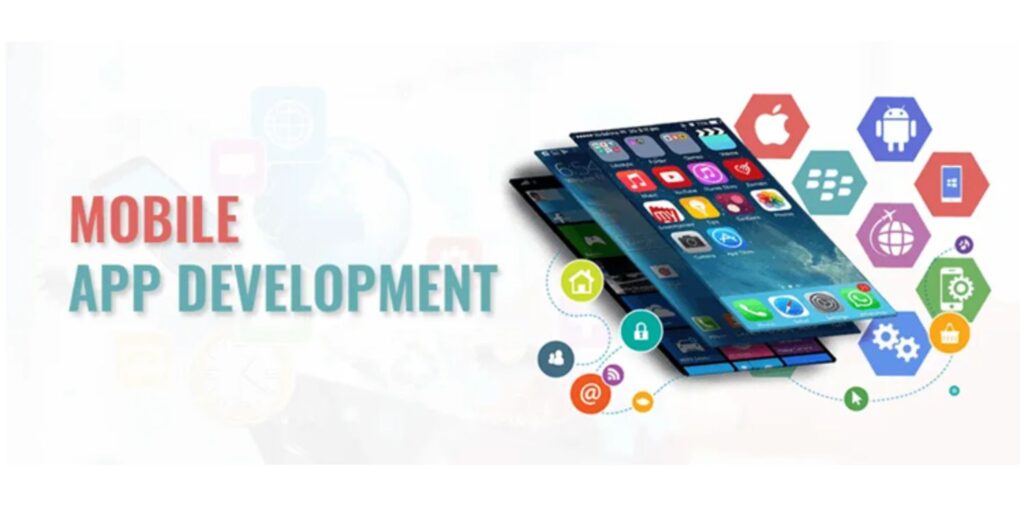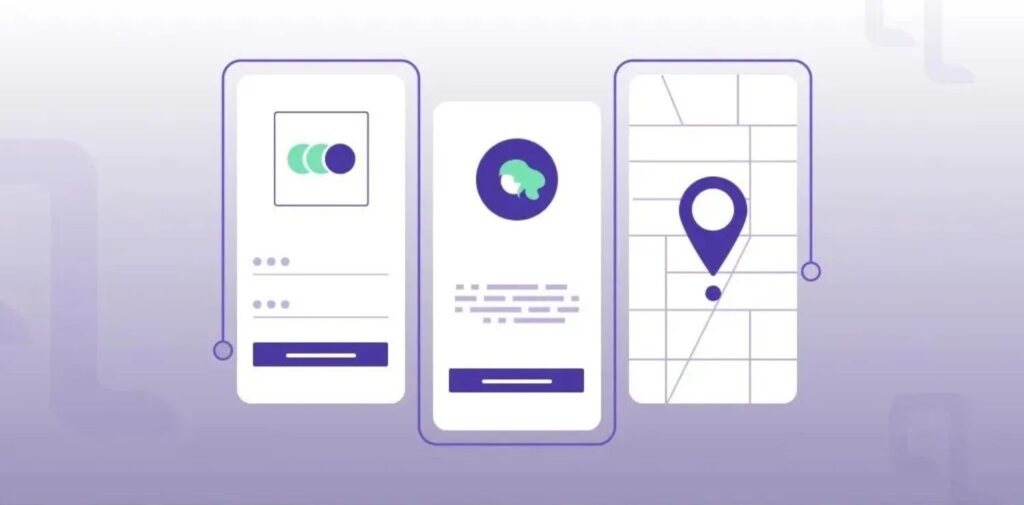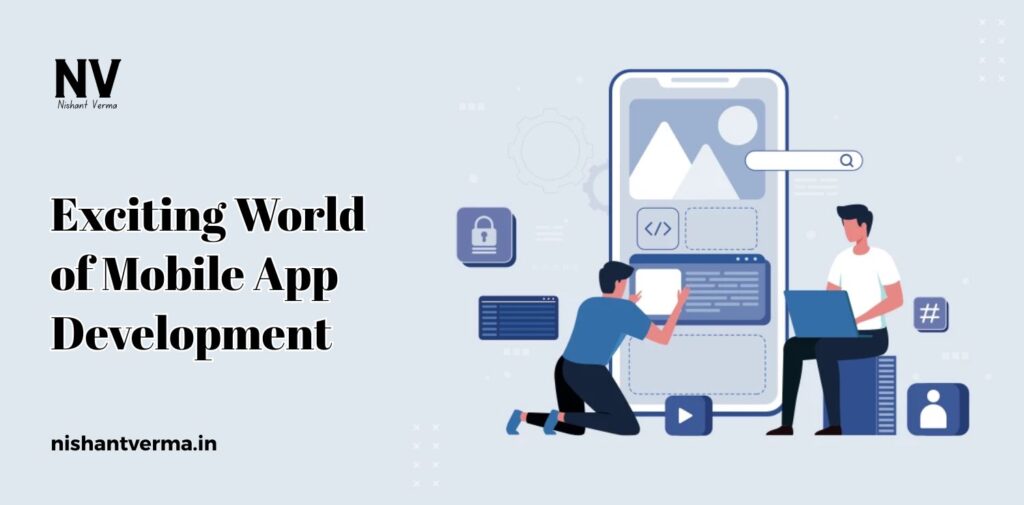Mobile apps have become an essential part of our everyday lives. Whether it’s ordering food, chatting with friends, playing games, or learning new things, apps make it all possible. But have you ever wondered how these apps are made? How do they work on your phone, and who creates them? This process of creating mobile apps is called “Mobile App Development.” In this article, we will explore what mobile app development is, why it’s important, and how you can get started in building your very own app.

What is Mobile App Development?
Mobile app development is the process of designing, creating, and maintaining software applications that run on mobile devices like smartphones and tablets. These apps can be anything from games to social media apps, educational tools, or even health and fitness trackers. The goal of mobile app development is to create useful and fun apps that can make people’s lives easier, more exciting, or more productive.
Every time you download an app, it has been developed by a team of programmers, designers, and developers. They put in a lot of effort to make sure the app works smoothly, looks attractive, and is easy for you to use. Without mobile app development, we wouldn’t have all the cool apps that we enjoy on our phones today!
The Basics of How Mobile Apps Work
To understand how mobile apps work, imagine your phone is like a tiny computer. Inside it, there are programs (apps) that run to help you do different tasks. For example, when you open a game app, the phone runs the program that makes the game show up on the screen, and allows you to interact with it using your fingers on the touch screen.
These apps use something called “code” – a special language that computers understand. This code tells your phone what to do when you press buttons, swipe the screen, or make a choice. Mobile apps can work on different platforms like Android (the operating system used by most smartphones in India) and iOS (used by Apple’s iPhones). Developers need to know the right coding languages for each platform to make the app work properly.
Types of Mobile Apps
There are mainly three types of mobile apps: native apps, hybrid apps, and web apps.
- Native Apps: These are apps that are built for one specific platform, like Android or iOS. For example, WhatsApp for Android is a native app. These apps run faster and are designed to work smoothly on the phone they are made for.
- Hybrid Apps: These are apps that can work on multiple platforms. A hybrid app might look and feel like a native app, but it is built with web technologies and can be used on both Android and iOS.
- Web Apps: These apps don’t need to be downloaded. They are just websites that look like apps. For example, Facebook’s mobile website can work as a web app on your phone.

Steps Involved in Mobile App Development
Creating a mobile app is not an easy job. It involves many steps, from planning to designing to coding and testing. Let’s break it down into easy steps:
- Planning and Research: Before starting to build an app, it’s important to know what the app will do. What problem will it solve? Who will use it? The developers need to gather all this information before they begin. This is also the time when developers check if similar apps already exist, so they can add something new or better to their app.
- Designing the App: Once the planning is done, the next step is designing how the app will look and work. This includes deciding on the layout, the colors, the icons, and the buttons. Good design is essential because it makes the app easy and fun to use. You don’t want to use an app that is hard to navigate, right?
- Development and Coding: This is the part where developers start writing the code to make the app work. There are different programming languages used for mobile app development, such as Java, Kotlin (for Android), and Swift (for iOS). Developers use these languages to create the features of the app.
- Testing the App: After coding, it’s time to test the app. Developers check for bugs, errors, or anything that might make the app crash. They also make sure the app works well on different phones and screen sizes.
- Launching the App: Once the app is tested and ready, it is launched on app stores like Google Play Store (for Android) or Apple’s App Store (for iOS). People can then download the app and start using it.
- Maintaining the App: After the app is launched, it needs to be updated regularly. Developers might add new features, fix bugs, or improve performance. This ensures the app continues to work well and stays relevant for users.
Why Mobile App Development is Important
In today’s world, mobile apps are everywhere. They have changed the way we communicate, learn, shop, and even do business. Here’s why mobile app development is so important:
- Helps Businesses Grow: Mobile apps are a great way for businesses to reach their customers. Many businesses, from small shops to large companies, have their own apps to sell products, offer services, or engage with customers directly.
- Makes Daily Life Easier: Mobile apps help us in our everyday activities. From booking tickets for a movie to ordering groceries, everything can be done through apps. Apps make tasks faster and more convenient.
- Provides Entertainment and Learning: Whether you want to play a game, watch a movie, or learn something new, there are apps for everything. Mobile apps make learning fun and entertainment easily accessible.
- Creates Job Opportunities: Mobile app development has created many job opportunities. There are developers, designers, marketers, and many other people who work together to build an app. If you love technology, you could even become an app developer in the future!

How to Get Started in Mobile App Development
If you’re interested in learning how to develop your own mobile apps, you’re in luck! Today, there are many tools and resources that can help you get started, even if you’re just a beginner. Here’s how you can begin:
- Learn to Code: The first step to becoming an app developer is learning to code. There are many online courses and tutorials available that teach programming languages like Python, Java, or Swift. These languages are used to develop mobile apps.
- Choose a Platform: Decide whether you want to create apps for Android or iOS. Learning how to build apps for one platform is a great starting point. Android development is usually easier to get into because there are more free tools available.
- Build Simple Apps: Start by creating simple apps. This could be anything like a calculator app or a to-do list app. This will help you understand how apps are built and how they work.
- Use App Builders: There are many online platforms that allow you to build apps without needing to write code. These platforms, like Thunkable or MIT App Inventor, are a great way to create basic apps.
- Join Online Communities: You can join online forums and groups where people share their knowledge about app development. These communities are full of tips and advice to help you improve your skills.
Conclusion
Mobile app development is an exciting field with endless possibilities. It’s a skill that can help you create apps that people will use and love. Whether you want to make a game, a social media app, or an educational tool, the world of mobile apps is full of opportunities. With some learning and practice, you can start developing your own apps and be a part of this amazing digital revolution. So, why wait? Start your journey in mobile app development today and see where your creativity can take you!




